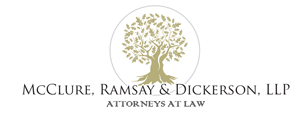Being accused of committing a drug crime can disrupt life as you know it. Mere charges can significantly damage your reputation, and a conviction can lead to jail or prison time, fines, and a criminal record that can cause loss of employment and trouble securing another job and housing. In other words, there’s a lot at stake in your criminal case, which is why you have to figure out how to mount the strongest criminal defense possible.
Evidence suppression may be the best defense tactic available to you. Here, you ask the court to block the prosecution from using certain evidence against you. If you’re successful in suppressing evidence, you can critically damage the prosecution’s case, which may lead to dismissed charges or an acquittal.
How can you suppress evidence?
To successfully suppress evidence, you’ll have to file a motion with the court and specify why you think that the evidence should be blocked. Here are some of the most common reasons why evidence is suppressed:
- Illegal traffic stop: A lot of drug-related criminal charges stem from traffic stops. These stops are supposed to be supported by reasonable suspicion that a criminal act or traffic violation has occurred. In a lot of instances, though, the police initiate a stop without that requisite suspicion. This is illegal and can taint any subsequently gathered evidence with illegality. Here, the evidence that is seized is considered fruit of the poisonous tree and is, therefore, inadmissible at trial. So, you’ll want to scrutinize the traffic stop that led to your arrest.
- Chain of custody errors: When the prosecution submits physical evidence against you at trial, it has the burden of proving that the evidence is reliable and hasn’t been compromised. Sometimes, though, the police handle evidence improperly, which can render it questionable. This may occur with substances that are seized and subsequently tested by a laboratory or other critical evidence in your case.
- Unfairly prejudicial: Some evidence isn’t directly related to the crime that’s been charged, but the prosecution tries to use it to paint you in a negative light. If the evidence doesn’t have much probative value and is outweighed by its prejudicial impact, you may be able to prevent it from being used against you at trial.
- Failure to appear at deposition: One of the best ways to figure out what the prosecution is going to present against you is to depose its witnesses. Here, you take sworn testimony from those witnesses outside of court and before trial. But if you subpoena those witnesses and they fail to appear at depositions, the prosecution’s use of those witnesses’ testimony is unfair. That’s why you may be able to block this testimony from being used against you at trial.
Depending on the facts of your case, there may be other ways that you can suppress the prosecution’s evidence. You just have to know your options and how to exploit them to your advantage.
Don’t let the prosecution take control of your case
If you want to rip control of your case away from the prosecution, you have to know how to develop legal strategies that are firmly rooted in statutory and case law. If that’s something that you’re uncomfortable with, you might want to secure the assistance of a proven criminal defense attorney.
By doing so, you can maximize your chances of protecting your rights and beating the charges that have been levied against you. Hopefully, you can put this matter behind you and get back to your normal life.
